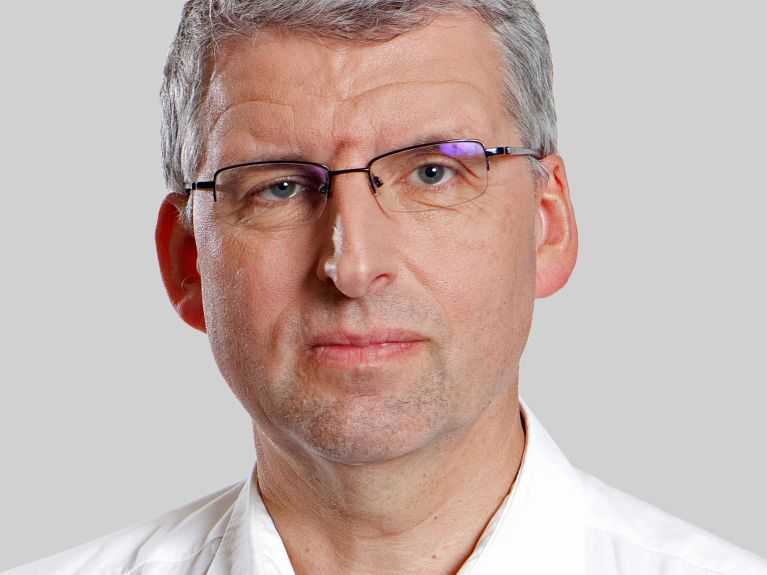Enough is enough!
How WWF Germany wants to stop plastic litter entering the oceans in Southeast Asia.

An interview with Dr. Bernhard Bauske, expert on packaging and marine litter at the World Wide Fund for Nature (WWF) Germany.
Dr. Bauske, recent images in the media have shown horrific scenes of plastic litter on beaches and in the sea – particularly in Southeast Asia. What are the main reasons for this?
According to estimates, between 4.8 and 12.7 million tonnes of plastic waste are dumped in the oceans annually. The lion’s share, some 80% of the plastic, comes from activities on land. The rest comes from the fishing and shipping industries. The countries of Southeast Asia are at the centre of the phenomenon of plastic waste ending up in the oceans, mainly owing to inadequate waste management systems. Some of the rubbish is thrown directly into rivers or illegally disposed of this way. The rivers then wash the plastic refuse to the sea.

WWF Germany is working on a project in the Mekong Delta. What exactly are you doing there?
Vietnam places fourth among the countries from which the most plastic litter ends up in the oceans,. The reason that rubbish finds its way from the Mekong Delta into the sea is that there is insufficient capacity for waste disposal, meaning landfill sites, incineration plants and sorting and recycling facilities. Rubbish is mostly left in heaps in the countryside, is sometimes illegally dumped in canals or small piles of rubbish build up along the edges of roads. So we need to relieve the burden on the available landfills and incinerators if we are to reduce the danger of rubbish entering the waters of the Mekong Delta. That can be achieved if rubbish is separated at household level.
Companies that market packaged products should help finance the collection, sorting and recycling of used packaging in Southeast Asia, too.
In this way, above all the high organic proportion of the waste can be separated for composting and plastic refuse can enter the recycling process. With this project, and in cooperation with local authorities, we intend to test the separated collection of household refuse so that we can transfer this model project to other districts and provinces. Before initiating the project we are investigating the extent to which the separated material categories are being used on the market, i.e. which distribution channels for compost or other recyclables exist and can therefore be meaningfully exploited. Subsequently, we intend to procure special rubbish carts with separated collecting containers in order to collect the separated rubbish from households. This will considerably reduce the volume of general waste and the resulting newly created capacity can be used to remove the heaps of rubbish lying around the countryside.
In 2017 WWF launched a project together with Bengali Nobel Peace Prize laureate Muhammad Yunus. What goals does the collaboration pursue?
Waste management projects are closely linked to social issues. For example, collecting certain used forms of packaging such as cans or plastic bottles can provide a source of income for parts of the population. We have to consider that when realizing projects. For the joint initiative with Nobel Peace Prize winner Muhammad Yunus we plan to focus on several regions in Southeast Asia to offer small firms an opportunity to earn money and address the problem sustainably.
Gloomy forecasts predict that in 2050 there will be more plastic in the oceans than fish and almost every seabird will have plastic in its stomach. What must we do to prevent such a scenario?
One of the reasons that we have plastic litter in the oceans is without doubt the insufficient structures for collecting and processing refuse. Alongside avoidance measures such as banning plastic bags, a functioning waste collection and recycling industry could help in this regard. Unfortunately this often fails owing to a lack of money for the necessary investments and running costs. For that reason companies such as manufacturers of consumer goods that market packaged products should help finance the collection, sorting and recycling of used packaging in Southeast Asia too in the context of an “extended product responsibility”, such as is already the case in Germany and many other European countries.
Interview: Martin Orth
